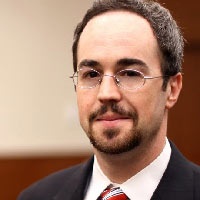 Ashville Misdemeanor Lawyers, Ohio
Ashville Misdemeanor Lawyers, Ohio
Not enough matches for Ashville Misdemeanor lawyer.
Below are all Ashville Criminal lawyers.
Sponsored Lawyers
1-10 of 60 matches
Criminal, DUI-DWI, Felony, Traffic
Life can throw you a curveball. You need someone in your corner that understands good people can make mistakes. Michael also understands that good people are also often accused of something they simply did not do. Michael J. Hayes, Esq. knows all too well there are two sides to every story. Let Michael J. Hayes, Esq. represent your side and fight for your rights.
(more)Criminal
An experienced and accomplished legal advocate, Benjamin L. Luftman is a founding partner at Luftman, Heck & Associates and has practiced law for nine years. His sole practice areas are in criminal defense and traffic violations, having represented clients in cases ranging from the most serious felonies to minor traffic offenses, with a particular concentration in the area of OVI/DUI law.
(more)Criminal, Divorce & Family Law, Estate, Traffic
Our Attorneys & Lawyers practice with the highest standards of professionalism while handling cases throughout all 88 counties in Ohio. We provide aggressive and caring legal representation at an affordable rate. You will not see excessive legal retainers and you will not be billed for unnecessary work. We are efficient and thorough, which allows us to reach your goal in the quickest manner and for an affordable rate.
(more)






